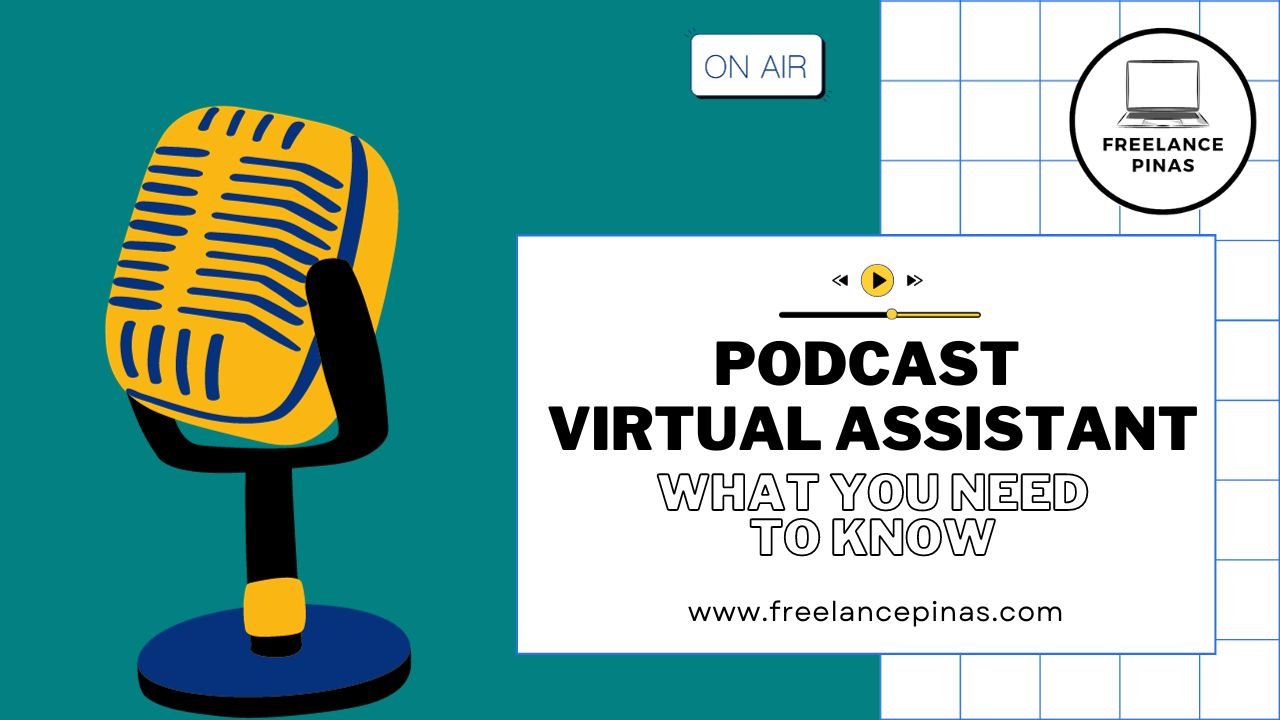Podcasts have emerged as a powerful medium for communication and entertainment. With millions of podcasts available today, there’s a growing demand for Podcast Virtual Assistants (PVAs) who can help podcasters manage, promote, and grow their shows.
As a PVA, you’ll be working behind the scenes to ensure everything runs smoothly. To excel in this role, you need the right set of tools and technology. In this article, we’ll explore the essential tools and tech that every Podcast Virtual Assistant should be familiar with.
Introduction to Podcast Virtual Assistance
Before delving into the tools and tech, let’s briefly understand the role of a Podcast Virtual Assistant. PVAs are responsible for various aspects of podcast management, which may include:
- Audio Editing: Editing and enhancing podcast episodes to improve audio quality.
- Content Management: Organizing and scheduling podcast episodes for release.
- Show Notes: Creating detailed show notes for each episode to improve SEO.
- Promotion: Marketing and promoting podcasts to increase their reach.
- Research: Conducting research to find potential guests or relevant topics.
- Administrative Tasks: Handling administrative work related to the podcast.
Now, let’s explore the essential tools and tech to help you excel in these tasks.
Audio Editing Software
High-quality audio is a must for any successful podcast. Whether you’re cleaning up background noise, adding effects, or simply editing out mistakes, audio editing software is essential. Here are some popular options:
- Audacity: This open-source software offers a range of audio editing features and is perfect for beginners.
- Adobe Audition: A professional-grade tool for audio editing and post-production.
- GarageBand: Ideal for Mac users, GarageBand is a user-friendly option for audio editing.
- Hindenburg Journalist: Designed with podcasters in mind, this software simplifies audio editing.
Content Management Systems
To manage and schedule podcast episodes, you’ll need a content management system (CMS) tailored for podcasts. Here are a few options:
- Libsyn (Liberated Syndication): A popular choice for podcast hosting and distribution.
- Podbean: Offers podcast hosting, monetization, and website integration.
- Transistor: A user-friendly platform with podcast analytics and hosting.
- Blubrry: A WordPress podcasting plugin that integrates with your website.
Show Notes Tools
Creating detailed show notes is crucial for search engine optimization (SEO) and audience engagement. Consider using these tools:
- Google Docs: A straightforward option for creating and collaborating on show notes.
- Evernote: Ideal for organizing notes and ideas related to each episode.
- Notion: A versatile workspace for creating show notes and managing other podcast-related tasks.
- Trello: Helps you organize and manage podcast episodes, show notes, and tasks.
Marketing and Promotion
Effective marketing is key to growing your podcast’s audience. Use these tools to promote your podcast:
- Social Media Management Tools: Platforms like Buffer, Hootsuite, or Later for scheduling and managing social media posts.
- Email Marketing Platforms: Tools like Mailchimp, ConvertKit, or AWeber for building and engaging with your email list.
- Podcast Directories: Submit your podcast to directories like Apple Podcasts, Spotify, and Google Podcasts.
- Canva: Create eye-catching promotional graphics for your podcast episodes.
Research and Analytics
Thorough research and understanding your audience are essential. Here are some tools for research and analytics:
- Google Trends: Explore trending topics and search queries to guide your content.
- BuzzSumo: Discover popular content and influencers in your podcast’s niche.
- Podcast Analytics Tools: Many podcast hosting platforms offer analytics for understanding your audience.
Administrative Tools
Lastly, you’ll need tools for streamlining administrative tasks:
- Project Management Software: Tools like Asana, Trello, or Monday.com help you stay organized.
- Calendar Apps: Use Google Calendar or Calendly to schedule podcast interviews and appointments.
- Communication Tools: Slack, Zoom, or Microsoft Teams for staying in touch with your podcasting team and guests.
Training and Skill Development
To excel as a Podcast Virtual Assistant, ongoing learning is crucial. Invest in courses and training related to podcasting, audio editing, SEO, and digital marketing. Websites like Udemy, Coursera, and LinkedIn Learning offer a wide range of courses to enhance your skills.
Conclusion
Becoming a successful Podcast Virtual Assistant requires a combination of skills, tools, and technology. By mastering the tools and tech discussed in this article and continuously improving your skills, you’ll be well-prepared to assist podcasters in creating engaging and successful shows. Whether you’re an aspiring PVA or looking to level up your existing skills, these tools and tech will be your allies in the world of podcasting.
Remember, in the ever-evolving world of podcasts, staying updated with the latest trends and technologies is the key to flourishing as a Podcast Virtual Assistant. So, equip yourself, dive in, and make your mark in the world of podcasting!
